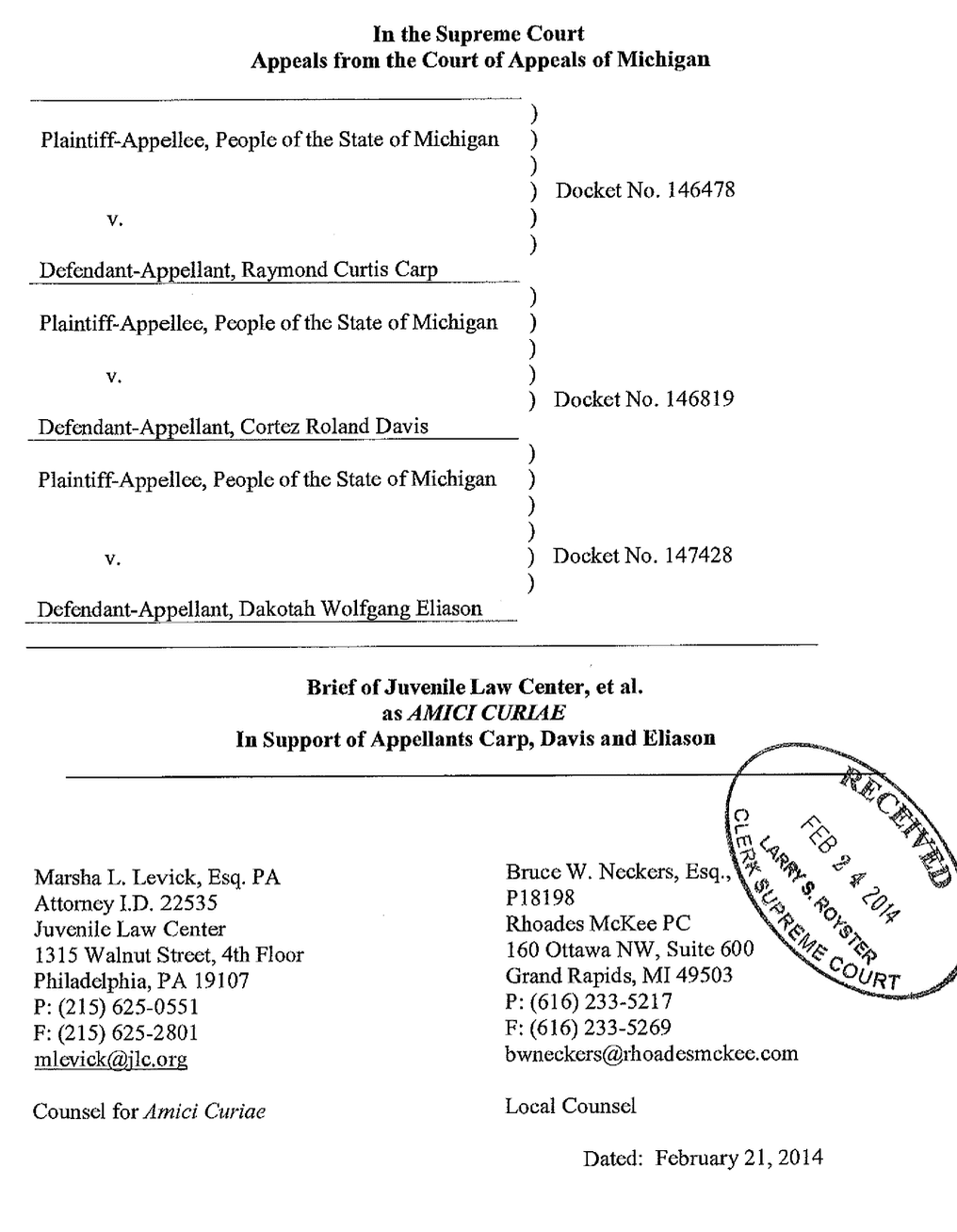
Summary of Argument
In Miller v. Alabama, 567 U.S. , 132 S. Ct. 2455 (2012), the United States SupremeCourt held that the mandatory imposition of sentences of life without the possibility of parole on juvenile offenders convicted of murder is unconstitutional. At the time Appellants were sentenced for crimes they committed as juveniles, state law mandated a life without parole sentence for their murder-based offenses. As applied to juvenile offenders, this mandatory scheme is unconstitutional pursuant to Miller, which reaffirms the U.S. Supreme Court's recognition that children are categorically less deserving of the harshest forms of punishments.
Miller applies retroactively to Appellants Carp and Davis and to other eases that have become final after the expiration of the period for direct review. Although Miller also applies retroactively under Michigan state law, Amid focus on Miller's retroactivity under federal law and argue that Miller applies retroactively for four primary reasons. First, the United StatesSupreme Court has already applied Miller retroactively by affording relief in Kuntrell Jackson's case, which was before the Court on collateral review. Second, Miller announced a substantiverule, which pursuant to Supreme Court precedent applies retroactively. Third, even assuming the rule is procedural, Miller is a watershed rule of criminal procedure that applies retroactively. Finally, Miller must be applied retroactively because, once the Court determines that a punishment is cruel and unusual when imposed on a child, any continuing imposition of that sentence is itself a violation of the Eighth Amendment; the date upon which an unconstitutional mandatory life without parole sentence is imposed cannot convert it into a constitutional sentence.
Additionally, the prohibition against "cruel and unusual punishments" found in the Eighth Amendment to the United States Constitution categorically bars the imposition of a life without parole sentence on juvenile offenders convicted solely on the basis of having aided and abetted the commission of a felony murder. Further, any life without parole sentence for a juvenile convicted of felony murder is inconsistent with adolescent development and neuroscience research and is unconstitutional pursuant to Miller and Graham v. Florida, 560 U.S. 48 (2010) (holding that a life without parole sentence can never be imposed upon a juvenile when there is no finding that the juvenile either killed or intended to kill). Every child convicted of murder in Michigan must receive an individualized sentence that takes into account his age and individual circumstances and, absent a finding that he is among the rare juveniles for whom life without parole is appropriate, he must be afforded a meaningful opportunity for release based on his demonstrated maturity and rehabilitation. See Graham, 560 U.S. 48.